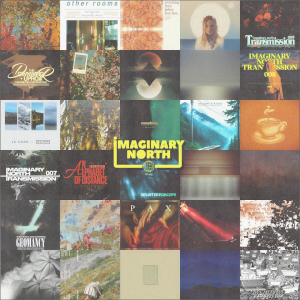SIGN is a comprehensively beautiful and surprisingly comfortable land in this ever-expanding continent of sonic weird. Autechre’s melody is back in full, but their sound design keeps mutating the cognitive coherence of the experience.
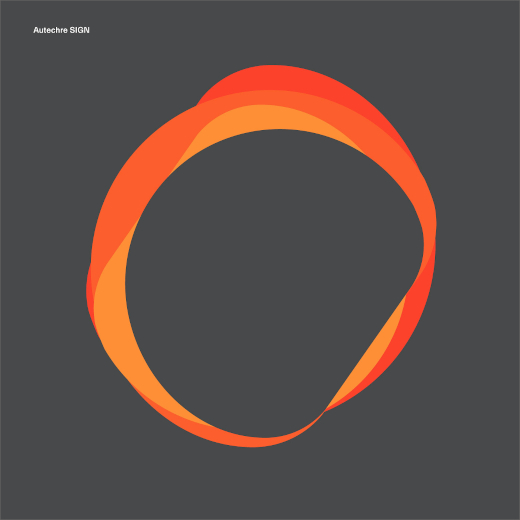
Autechre :: An apparent SIGN
Sometime in 1999, an AIM user with the handle “chemical_redux” sent me a massive block of text around 2am. I think her real name was Sarah, and she was a criminal forensics student. I have zero recollection of how we got connected or if she was in any way who she claimed to be. We never met. It didn’t matter.
The internet back then was a vastly simpler place. All that mattered was that he/she/they was adamant, based on our shared and seemingly isolated love of electronic music, that I listen to Autechre as soon as possible. I messaged back saying that my ISP was effectively a shitty time machine that just slowed everything down to unbearable speeds, and I was at least an hour or more away from any store that even had the remotest possibility of carrying music from an abstract electronic music duo from Manchester. If there was a chance, it was the Sam Goody at the Mall of America, and any CD I may discover there would cost approximately three million dollars of my hard-earned 20th century money.
chemical_redux defied known physics of the late 90’s and responded within a few seconds. From Chicago. I think. She offered to send me CDs free of charge and asked for my address. The internet being several orders of magnitude less questionable than, say, in the early 2000s (I posit that its descent into hell has been roughly proportional to improved connectivity speeds), I immediately felt this would be a good idea. Because why not. My teenage self had little reason to consider that it might be a bad one. I gave her my address and whatever string of ASCII passed for enthused emoji at the time. Days later, sure as a reliable studio microphone, a bubble mailer arrived at my house. Inside were two CD-Rs, labeled Incunabula and Amber. It took me one round through each of them to realize they would probably flake away into dust from constant play over the months to come. And dust they became. But, in true form of the bafflingly contradictory nature of our reality, much more became of that dust.

In the years since then, I have seen Autechre live 4 times—the last of which being in a suitably massive and eerie Masonic Temple in Brooklyn, where there were nearly enough photons to almost maybe possibly make Sean and Rob out on stage thanks to code requirements (a very slight departure to their fuck-you tradition of playing in near-total darkness). I have since listened to every one of their official releases on the *insert BBC radio DJ voice here* absolutely legendary Warp Records, usually on repeat.
Every time, I put on headphones, pull up a cat and just appreciate the bizarre and wonderful experience of giving my musical mind a very strange sort of ritualized workout.
Every time, I put on headphones, pull up a cat and just appreciate the bizarre and wonderful experience of giving my musical mind a very strange sort of ritualized workout. From the now-classic, melodic IDM of their earlier work like Cichlisuite, to their seemingly impenetrable and purposefully obtuse generative work that bares a striking resemblance to the inner monologue of a schizophrenic artificial intelligence, I’ve attempted to digest it all. All with gratitude and nothing but a grin on my face. To put it bluntly, I am not one of those listeners (nor reviewers) who expects any of my favorite artists to be or do anything in particular. As an electronic musician myself, I’m just glad they exist and I get to dive into their work. I don’t have the energy to make demands of someone else’s creativity. Frankly, I find it kind of a dick move. Maybe it’s because I’ve been on the receiving end. Maybe I’m just jaded by the fact that criticizing other people ad nauseam is in good part why the internet is not what it once was, fast as it may be. So, keep that in mind while reading this review (which I promise is coming), if you got this far.
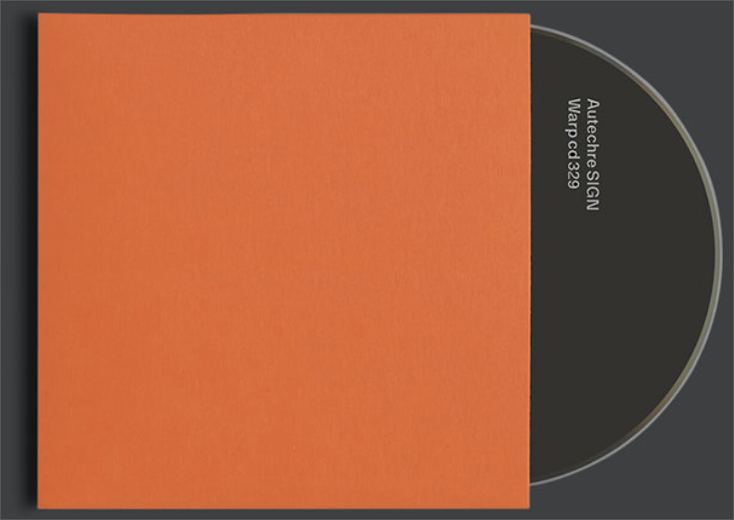
Autechre is a warm place. It is a human place. It always has been, but lest we forget, now we remember.
All this is to preface that, when I saw the announcement of their new album SIGN, with its uncharacteristically simple title and first use of vibrant color artwork since literally ever, I thought back to those first two CD-Rs that chemical_redux emailed me sight unseen. I guessed that this may be the long-heralded return of sorts to their simpler times, their melodic roots, their warmer and often innately human synthetic landscapes. When the album streamed in advance of the release date on Warp’s website, I was semi-stunned to realize I was…kind of right. From a certain point of view. While this was not a complete return to the gentle warmth of “Glitch” (a track now rather ironically titled in the broader context of their future work) it is definitely…something. Something is different about Autechre. Did they finally retire their apparently sprawling and CPU-devouring Max/MSP “System” in favor of hardware again? Did they just get older? Is it indeed a “Sign”? I think so. I just have no idea of what. Or rather, I have some idea, and I like it. It feels to me like they’re gathering up everything from their decades of production, for the first time, and laying it out for us. Let’s take a trip.
Reflecting on this imaginative listening session ::
“M4 Lema” — Opening with a rainforest of clangs, clacks, booms and generative chatter rather befitting of expectations, the first minute and a half of this fucking fantastic track read like a train ride through a tunnel of Autechre’s back catalogue. It all whirs past in a seemingly unambiguous reminder of what we thought was coming. But instead, it’s effectively a trick. A warm, immense beam of cathedral pad sunlight washes over the whole retrospective and makes a definitive mission statement at a right angle: SIGN is a comprehensively beautiful and surprisingly comfortable land in this ever-expanding continent of sonic weird. Autechre’s melody is back in full, but their sound design keeps mutating the cognitive coherence of the experience. While I can’t help but think of Messier clusters when I see “M4 Lema,” I imagine these guys thinking of a UK highway, flying past an industrialized landscape and into a forest of autumnal color. This is one of Autechre’s best. It feels like they took everything amazing they’ve done in over 30 years and compressed it into just under 9 minutes. If any especially critical listeners have a problem with this, then I assert they have climbed too far up their own assholes to appreciate anything. This is a phenomenal piece of work.
“F7” — After the previous tune, the cold open listener might be expecting something rather familiar and continuous on the second. It is, actually. But it also isn’t, really. The clearly composed melody of “F7,” seemingly generated by a Yamaha DX-7 that has been dropped one too many times, has glitched well past its glitch mode and been soldered to a kitchen appliance, is still somehow more measured, wise, deliberate and carefully structured than much of their work over the past decade. The composition is an affirmation of the melodic skill clearly illustrated in their earlier releases, but bent, contorted, lensed and refracted through the dissonance of the exceptional and bewildering programming of their latter years. It feels to me that they’re saying they enjoy hand-writing melodies again, but they’re not going to do it the way you think because that would be…not what they do. Maybe not what you want. Their algorithms are still joining in and they continue to have a place at this strange table. Also, I tried pressing “F7” to this track, but all it did was make an annoying “bonk” sound, so I don’t really recommend it.
“si00” — The plucky stabs and thrumming bassline of “si00” continues the thread of “F7,” reminding us this album has a methodically preconceived melodic backbone, but it’s not going to let us really lean into that without having to work a bit. We have to process it. It’s a puzzle. The heavy pad that drops in around 2:30 and vacillates at surprisingly predictable semi-tone intervals reminds us this is all quite on purpose. The dissonance within the otherwise digestible frequency differentials is an inherent part of the intentional landscape we’re experiencing. Rob and Sean are doing this somewhat by hand this time, not via a convoluted software patch that’s literally left to its own devices. It’s there, but it’s on the periphery of the structure, bending the edges and augmenting the biological input values.
“esc desc” — Soon after chemical_redux sent me those first CD-Rs, I did actually manage to find an Autechre record. It was at Universal Studios in Orlando, during a senior trip I took in high school to sing with my choir group for Disney World. I managed to find a copy of Tri Repetae++ at the now-defunct Tower Records, and listened to it in full on the flight back to Minneapolis. Of all the standout tracks on that album, the one that stuck with me the most was the ambient dronescape “Vietrmx21” at the very end of the bonus disc. “esc desc” brought me to a similar place again, after a very long time. Pensive and sprawling, this piece is another definitive statement of trans-time AE-ness on SIGN. This happened a bit at times in Oversteps and Exai but here it feels like an old ambient track lifted from their Amber years has been been prismatically bent through “The System,” or whatever is left of it, or whatever it’s become. Goddamn do I want these guys to do a movie soundtrack.
“au14” — The bluntly impactful opening perc of “au14” (which I read as Gold 14, because uhm, it’s an element that tends not to tarnish) punches like the best moments of Untilted but quickly sputters into something that would readily fit in on Confield. Or would this track work best on LP5? No it would totally sound at home on EP7. Or none of those? Wait—shit—now it sounds like Quaristice. Alright I guess this is just fucking Autechre. I probably should have expected that, but holy heck are they rounding up all the odds and ends of a dizzyingly complex years-long audio journey.
“Metaz form8” — Remember when I said Sean and Rob should do a movie soundtrack? This is that. “Metaz form8” is a digitally orchestral soundtrack moment from a film I haven’t seen but damn do I want to. It conjures convoluted visions from the modern greats of sci-fi, whether it’s a burnt but beautiful landscape of Blade Runner 2049, staring into the fractal eye of an alien *something* in Annihilation or sadly longing through a rain-splattered future window, at a dystopian city, for an AI companion a la Her. Like “M4 Lema,” the opener of the album, “Metaz form8” is a reiteration of the mission statement of SIGN. Autechre is a warm place. It is a human place. It always has been, but lest we forget, now we remember.
“sch.mefd 2” — We can’t get too comfortable here, but we all knew that. Following the stringed synth harmonics of the metaphysical “Metaz form8,” we’re back in a Confield somewhere, or some kind of one. Like the simpler Autechre of a bygone century, we know this place. But it’s not the same place it was. It’s a bit more overgrown now, a bit more covered in I/O lichen. Some metals have fused together in galvanic reaction, others have oxidized in dependable redux. This is what happens when a Confield doesn’t get mowed in a very, very long time. I can see some listeners getting frustrated at this point, hoping for something more “listenable,” but to my ears, this is exactly what an older, more grey Autechre would do. I am glad to be here. Oh, and geez, has this year been schmefd am I right? At least some good things have come of it.
“gr4” — Linking with “esc desc” and “Metaz form8” in an imaginary ambient cinema-score, this is the track that reminds me most of the cover of this album. This is full circle Autechre. At the well-known risk of hyperbole, we are seeing them in the totality of their expression, whether it appeals to us or doesn’t. I am reminded that the colors present on the cover of SIGN are distinctly autumnal, quite unlike any other art from them. I look out my window and see the reds, oranges and yellows set against the landscape of Boulder and the Rocky Mountains in October. I realize that, much like the vibrant orange disc of Massive Attack’s Mezzanine—burnt into my adolescent memory as a symbol of Halloween—this album has joined the ranks as an auditory landmark of Fall. For all the fuckery of 2020, there is always meaning hiding around the corners of chaos.
“th red a” — Sometimes, like most of you, I have only the very foggiest of ideas as to what AE are suggesting with their track titles. This is not one of them. My head reads this as “Threader,” and interprets the intent as a ligament of connection between not only all the tracks we’ve already visited on SIGN but everything else we visited before from them as well. This may not be the precise intent, and probably isn’t, but it sure as hell feels like it. This is a peaceful landing platform for the wild ship we’ve been riding for some time. It gives you a map, some rest and a place to cast your gaze out over the totality of the journey. Once again my ears are drawn to what seems to be an readily purposeful composition, gilded with edges of algorithmic machine learning in MIDI. This track is 6:36 but as these tracks clearly lack a traditional hook, chorus, verse, etc., the time never really clocks the same in my head and I find myself consistently and incorrectly assessing how much time has passed…
…hold on, sorry. My fiancé informed me that there was a massive flock of crows outside, escaping the wildfire to the north (the largest in Colorado state history). The Crowening has begun. I went outside to record it. It sounded fantastic. Godspeed to the crows.
“psin AM” — Of all the tracks on SIGN, “psin AM” reminds me the most of something I’d find on an old Autechre record. It is also, as far as I can discern, the most clear illustration on this record that they have resumed their adept crafting of melody but with little of the dissonance or pitch bending of the first few rounds fired. While much of their recent discography has been percussively disorienting, their recent NTS Sessions saw the return of clearer, steady structure, ie: “Gonk Steady One” (described as having “electronic glitch and bass fitting neatly into place.”) This track, however, strips that back to the absolute bare essential of a steady thumping kick and nothing else. It is Amber at its root and EP7 at its periphery, but the final coalescence of all these things within an elegant expression, is, I think the SIGN that Autechre are sending us.
“r cazt” — I remember, years ago, having discussions on the seminal electronic music forum We Are The Music Makers (WATMM) about Autechre. Some users grumpily posited that AE had lost their hearts, lost their minds, or both. I never really thought either had occurred, but I fed the trolls anyway by contesting as such on an internet forum rife with speculative producers. “r cazt” proves my point, I think. Sean and Rob never left the land they introduced us to. They just kept tunneling through it, kept digging, kept building, kept looking and mapping. And here we are, at the top of an observation tower looking out over it all. I told you so, nerds. This track is an exquisite feat of modern ambient production and I am so happy it exists.
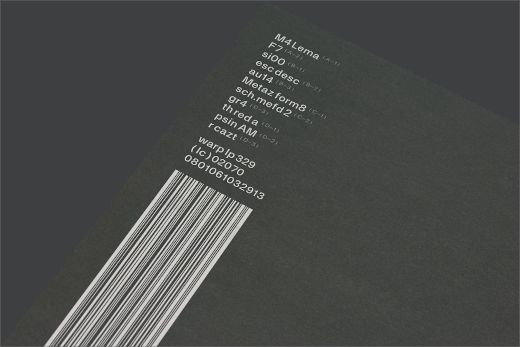
While I can’t confidently read too much into their titles, I learned to be a bit more sure of my derivations of their nomenclature when a friend and fellow producer (Erothyme) pointed out that the outstanding track of the landmark Draft 7.30, titled “vproc,” was clearly a reference to the breakdance “up rock.” Seeing the deeper intention of their work has always been a key to appreciating Autechre, I think. But sometimes it really doesn’t require as much as we think.
Concluding reflection ::
It’s never been totally random, or entirely dissonant, synthetic or challenging for the purpose of challenge. Their titles aren’t always just a mess of characters mashed out on a keyboard (though they have admitted to occasionally doing just this). Autechre’s work is, at its heart, and quite obviously, the creative output of two human beings and the machines they enlist—the lines of code they write, or function blocks they drag and connect—to support them. This is a human enterprise. SIGN is a blunt statement of this fact. Machines have been at the beck and call of the flesh and blood people who are AE. Barring some Matrix-esque takeover, they always will be.
This is electronic music for humans whether it sounds like it or not. It is recursive, generative, expressive, alive. It always has been.
As a whole, SIGN is my favorite recent outing by Autechre. It feels to me as if they have finally retired their growingly unwieldy “System” or driving all of their output from a custom software environment. They’ve gutted it for parts, left the rest in the bin, and connected what remains back into their old hardware, or new, or not—who knows. Either way, it is a new era of their creative efforts. This is electronic music for humans whether it sounds like it or not. It is recursive, generative, expressive, alive. It always has been. Whatever comes next will hopefully continue this new chapter in their discography, but I am always up for anything.
~ Guest contributor: Evan Snyder aka Skytree
SIGN is available on Warp. [Release page | Bandcamp]






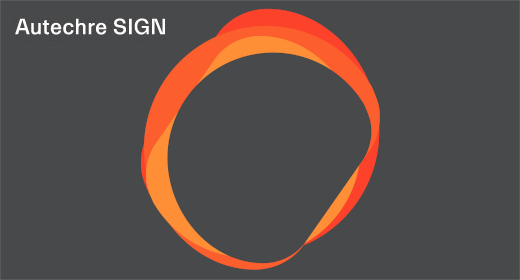
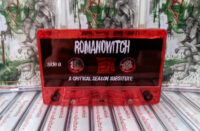
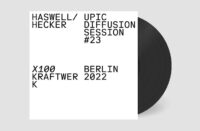
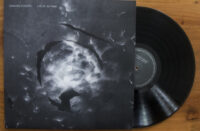

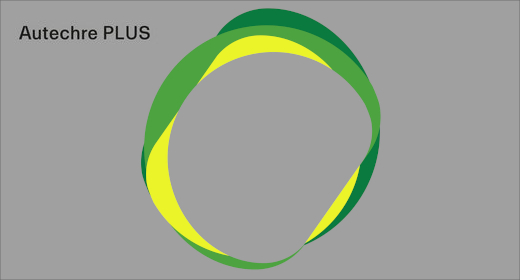
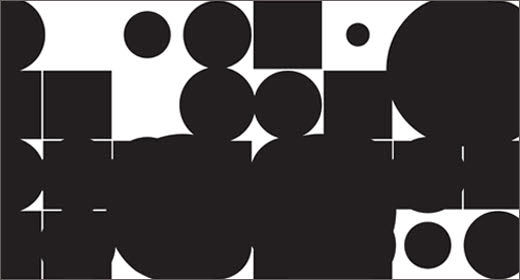
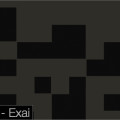
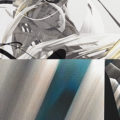
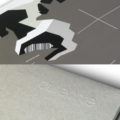
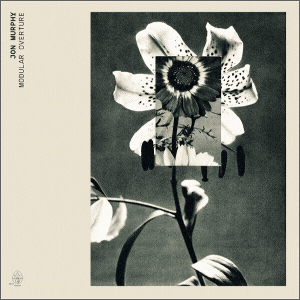
![Romanowitch :: A critical season substitute (glitch.cool) — [concise]](https://igloomag.com/wp/wp-content/uploads/2025/03/romanowitch-a-critical-season-substitute_tape_feat-75x75.jpg)







